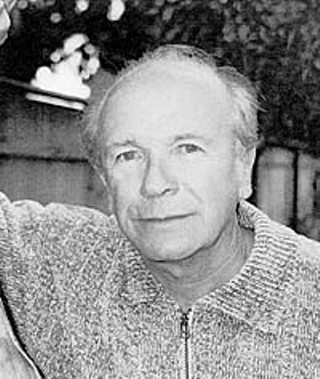Dead Man Writing
By Michael King, Fri., Jan. 10, 2003

The libretto of Dead Man Walking was written by playwright Terrence McNally, author of Frankie and Johnny in the Clair de Lune, Love! Valour! Compassion!, Corpus Christi, many other plays, and the books for the musicals Kiss of the Spider Woman, Ragtime, and The Full Monty. McNally, originally from Corpus Christi, has won four Tony Awards and many other distinctions. Last week, he spoke to the Chronicle from his home in New York.
Austin Chronicle: Why did you consider Dead Man Walking a good source for an opera?
Terrence McNally: If I was going to do my first libretto, I wanted it to be contemporary and American and about a subject that would interest an audience. I didn't want to do some romantic novel; I didn't want to do a contemporary Traviata or Bohème. I wanted to find a contemporary story that also was large enough emotionally to justify being an opera, because I think operas really have to sing. This story seemed to have all the ingredients to me: It has a great love story, even though it's not a romantic love story; it's got redemption, death; it's got all the things that Tristan und Isolde and Trovatore have.
AC: Did you find the capital punishment material daunting?
TM: An opera has to have a big subject; it's not about little stuff. I wanted a subject that was large and that I thought could be accomplished musically. It has to be a subject that I hear singing, even though I'm not a composer and I'm not going to write any of the music. Sister Helen is a living person, very specific, but in the opera she achieves a larger presence maybe than she did in the film or the book. I think Jake's music does add a stature, perhaps, or a more mythic quality. But it's still an opera about a very real woman, and it's an opera about a very real issue that we as Americans should be thinking about. We didn't want to write a preachy piece, but we certainly wanted to write a piece that, when it's over, maybe you've re-examined your feelings about capital punishment. And I don't think anyone can experience the opera and just say, "Oh, it's just an editorial against capital punishment."
I also think it's a story about love of a higher being: a deity, a god, the God that a Roman Catholic nun believes in. But it also becomes a love story between [Sister Helen and Joe De Rocher]; she is all he has in the world at the end. And she has a big journey to make as well -- she discovers that maybe she hasn't forgiven him. It's one thing to be a spiritual counselor, but the other is to forgive him herself. I think that's in the spirit of Sister Helen.
AC: Did you find this story echoed your own work, particularly in some of the religious themes of Corpus Christi or A Perfect Ganesh?
TM: Since I'm from that part of the world -- there's certainly a kinship between Texas and Louisiana -- it's still in my blood and vocabulary. I'm not a New Yorker by birth. I still have friends in Austin; my brother and his family live in Corpus Christi still. My parents are both gone, but I think once a Texan, always a Texan, just like once a Roman Catholic, always a Roman Catholic. There's a little of both of that in this piece, perhaps.
I just hope that audiences come to it with an open mind and open their hearts to it. This opera does reach people -- that I know. As a piece that communicates wonderfully with an audience, the piece succeeds on that level. As a playwright, that comes first with me. After writing plays for so many years, I have a pretty good idea of when an audience gets restless, and this one keeps an audience on the edge of their seats.








